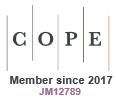Geographical Variation in Corroboree Frogs, Pseudophryne Corroboree Moore (Anura: Myobatrachidae): a Reappraisal Supports Recognition of P-Pengilleyi Wells &Wellington
WS Osborne, RA Zentelis and M Lau
Australian Journal of Zoology
44(6) 569 - 587
Published: 1996
Abstract
The extent of divergence in morphology and colour-pattern between allopatric populations of the corroboree frog, Pseudophyrne corroboree, was assessed over three breeding seasons by examination of eggs, tadpoles and adults throughout the distributional range of the species. Advertisement calls of individuals from each of the populations also were recorded and analysed. The mean size of adults was found to vary considerably between years; however, within any one year individuals from the Snowy Mountains (southern form) were significantly larger than individuals from the Brindabella Range and Fiery Range (northern form), with the differences apparently not simply related to environmental influences. Multivariate analysis of quantitative morphological characters and colour-pattern separated the frogs into two distinct geographic groups corresponding with the northern form and southern form. Analysis of advertisement calls indicated that there were slight differences in the structure of the calls of the two forms, with the main differences being in call duration and number of pulses. These results, combined with the previously described genetic differences, support their recognition as separate species. It is recommended that the name P. corroboree be restricted to the southern form and that the northern form be referred to as P. pengilleyi Wells & Wellington.https://doi.org/10.1071/ZO9960569
© CSIRO 1996


